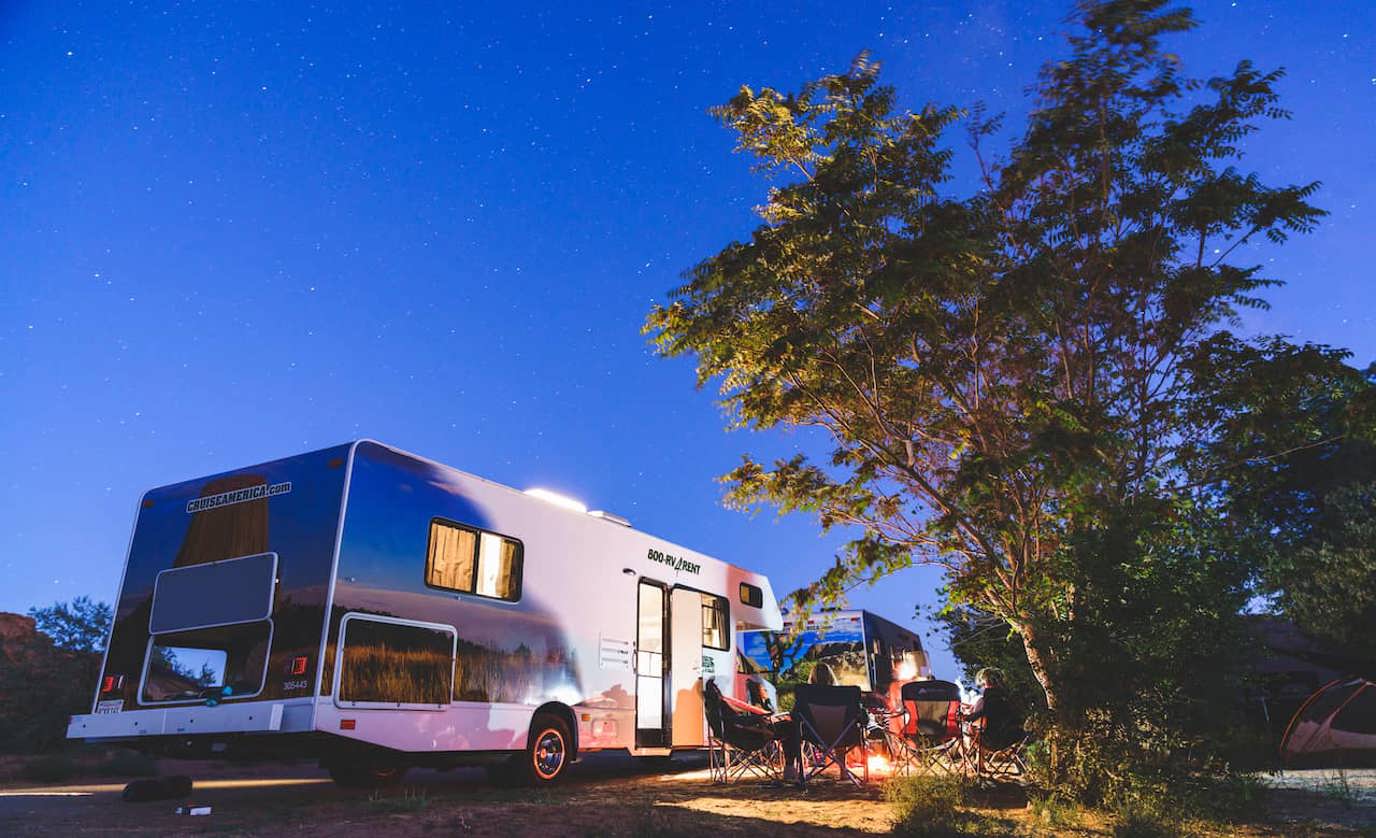
Living in an RV in Retirement - Cruise America
ShareRV living is a great way to vacation, and many family memories are created while traveling in one of Cruise America's fleet of Class C RVs. But have you ever considered living in a motorhome permanently? As retirement approaches, living in an RV full time might be something you want to consider.
There are many reasons why you might want to live in an RV in retirement. Here are some of them:
- Living in an RV means there are no property taxes.
- It requires less money to live.
- RV living equates to unlimited visits to and from friends and relatives.
- It creates new experiences.
- You can take an RV home with you.
- No more yard work.
- RV retirement living keeps you active and adventurous.
- It's one house but with changing views.
- You can make new friends who are doing the same thing.
Enjoy Retirement in an RV
Those who live in an RV on a permanent basis are motorhome-minded through and through. Most people who discover living in an RV full time after retirement wouldn't ever consider being without a motorhome again.In fact, many of those who do purchase their own motorhomes have the goal of eventually living in it permanently. It's really that comfortable. Once they figure out just how much it would save them, the RV life becomes an extra attractive prospect. If you are one of those thinking of letting go of the brick-and-mortar home concept to live in an RV, here are some of the things to consider.
Purchase a motorhome.
If you haven't bought an RV yet, a great place to look for the best deals in town is Cruise America's line of well-maintained, used Class C RVs. This model is relatively affordable, and all of the bugs have already been addressed to ensure your utmost comfort. At Cruise America, we eventually refurbish and convert our rental RV units to make them like new again while selling them for pennies on the dollar.
Choose a home base.
The next step to retiring in an RV is establishing a "home base" where you will receive your mail and packages. Sometimes, it's easier to open a PO box, although you can also have your stuff delivered to a friend or a family member's house, and they can forward it to your current location. In addition, you can subscribe to a mail forwarding service that will send your package to wherever you request they be sent. This will allow you the freedom to travel wherever and whenever you want in your permanent motorhome.
Will you stay in an RV park?
If you are considering staying in an RV park, don't hesitate to be very picky about the prices you spend on a nightly basis. Let's say you decide on a park that charges $20 per night, which is quite reasonable, then you know your rent will be around $600 monthly.
Consider your utility expenses.
Knowing how to live in an RV also means acknowledging the bills you have to pay. If you stay in one park for a long period of time, you may have to start making an electricity payment. On the other hand, if you are only staying for a month or less, most parks will usually pay your power bill (this varies from park to park). Even if you do end up paying for your electricity, it doesn't cost much to heat the small space you will be retiring in. In addition, most parks today offer free WiFi, so you can check the internet bill off your expense list.
Understand fuel expenses.
If you plan to live in an RV when you retire, be prepared for the fuel expenses from traveling from place to place. To save on gasoline costs, you can always pull a small vehicle (commonly referred to as a "toad" car) behind your RV so that you can run errands without pulling up stakes and breaking camp. After figuring out the average expenses, you'll find that RV living will cost most people less than half of what they were spending on a regular home. That said, RV retirement living is a viable and practical option for those who want to continue exploring after leaving the workforce.